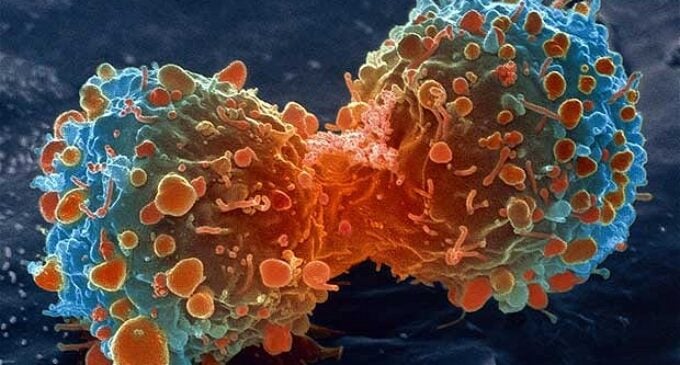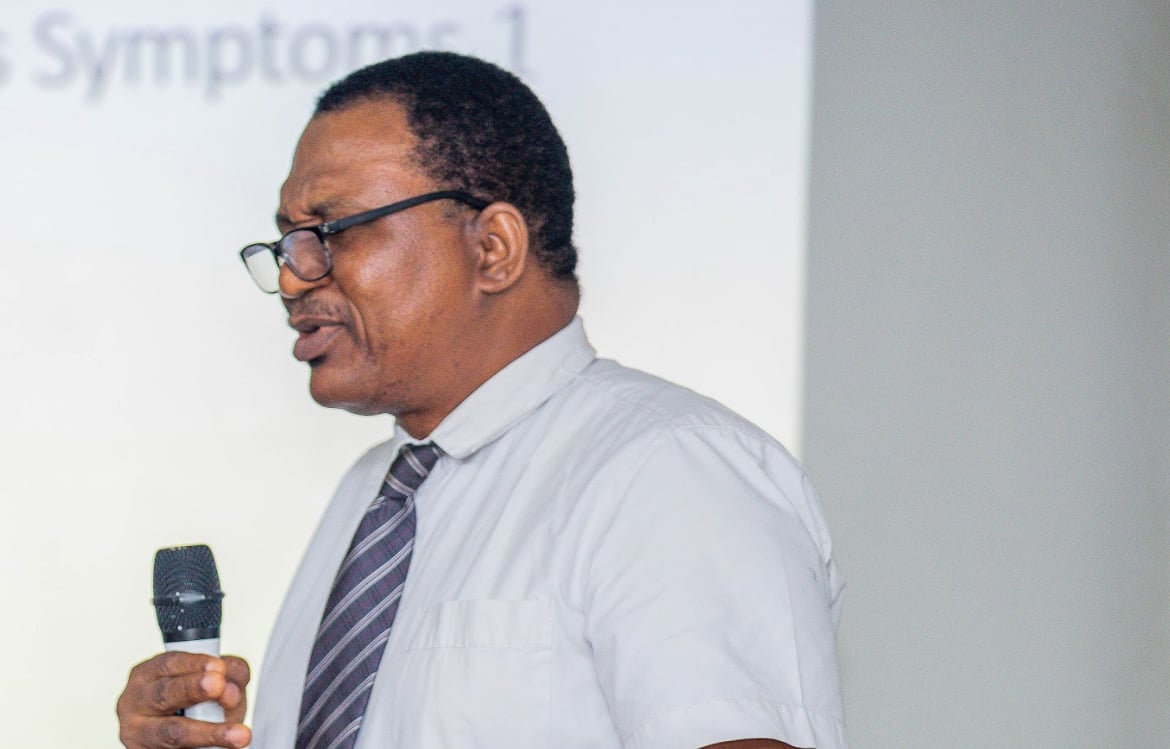Health
See the effects of sleeping less than 5 hours at night

Getting less than five hours of sleep in mid-to-late life could be linked to an increased risk of developing at least two chronic diseases, finds a new study led by UCL researchers.
The research, published in PLOS Medicine, analysed the impact of sleep duration on the health of more than 7,000 men and women at the ages of 50, 60 and 70, from the Whitehall II cohort study.
Researchers examined the relationship between how long each participant slept for, mortality and whether they had been diagnosed with two or more chronic diseases (multimorbidity) — such as heart disease, cancer or diabetes — over the course of 25 years.
People who reported getting five hours of sleep or less at age 50 were 20 per cent more likely to have been diagnosed with a chronic disease and 40 per cent more likely to be diagnosed with two or more chronic diseases over 25 years, compared to people who slept for up to seven hours.
Additionally, sleeping for five hours or less at the age of 50, 60, and 70 was linked to a 30 per cent to 40 per cent increased risk of multimorbidity when compared with those who slept for up to seven hours.
Researchers also found that sleep duration of five hours or less at age 50 was associated with 25 per cent increased risk of mortality over the 25 years of follow-up — which can mainly be explained by the fact that short sleep duration increases the risk of chronic disease(s) that in turn increase the risk of death.
“Multimorbidity is on the rise in high income countries and more than half of older adults now have at least two chronic diseases,” said Lead author, Dr Severine Sabia (UCL Institute of Epidemiology & Health, and Inserm, Université Paris Cité).
This is proving to be a major challenge for public health, as multimorbidity is associated with high healthcare service use, hospitalisations and disability.
“As people get older, their sleep habits and sleep structure change. However, it is recommended to sleep for 7 to 8 hours a night — as sleep durations above or below this have previously been associated with individual chronic diseases.
“Our findings show that short sleep duration is also associated with multimorbidity.
“To ensure a better night’s sleep, it is important to promote good sleep hygiene, such as making sure the bedroom is quiet, dark and a comfortable temperature before sleeping. It’s also advised to remove electronic devices and avoid large meals before bedtime. Physical activity and exposure to light during the day might also promote good sleep.”
As part of the study, researchers also assessed whether sleeping for a long duration, of nine hours or more, affected health outcomes. There was no clear association between long sleep durations at age 50 and multimorbidity in healthy people.
However, if a participant had already been diagnosed with a chronic condition, then long sleep duration was associated with around a 35% increased risk of developing another illness. Researchers believe this could be due to underlying health conditions impacting sleep.
Jo Whitmore, senior cardiac nurse at the British Heart Foundation said: “Getting enough sleep allows your body to rest. There are a host of other ways that poor sleep could increase the risk of heart disease or stroke, including by increasing inflammation and increasing blood pressure.
“This research adds to a growing body of research that highlights the importance of getting a good night’s sleep.”
Health
Scientists discover blood proteins that could warn of cancer years before diagnosis

Scientists in the UK say they have found proteins in the blood that could warn people of cancer more than seven years before it is diagnosed.
In two studies funded by Cancer Research UK, scientists identified 618 proteins linked to 19 types of cancer, including colon, lung, non-Hodgkin lymphoma and liver.
The proteins included 107 associated with cancers diagnosed more than seven years after the patient’s blood sample was collected, and 182 that were associated with a cancer diagnosis within three years.
In the first study, scientists studied blood samples from more than 44,000 people in the UK Biobank, including over 4,900 people who subsequently had a cancer diagnosis.
They found the proteins by comparing those present in people who did go on to be diagnosed with cancer and those who did not.
In the second study, the scientists looked at genetic data from over 300,000 cancer cases to find which blood proteins were involved in cancer development and could be targeted by new treatments.
The scientists found 40 proteins in the blood that influenced someone’s risk of getting nine different types of cancer.
The scientists concluded that some of these proteins could be used to detect cancer much earlier and potentially provide new treatment options.
‘FURTHER RESEARCH REQUIRED’
They however cautioned that further research is needed.
Ruth Travis, senior author of both studies, said to be able to prevent cancer, there needs to be an understanding of the factors driving the earliest stages of its development.
“These studies are important because they provide many new clues about the causes and biology of multiple cancers, including insights into what’s happening years before a cancer is diagnosed,” she said.
“We now have technology that can look at thousands of proteins across thousands of cancer cases, identifying which proteins have a role in the development of specific cancers, and which might have effects that are common to multiple cancer types.”
Health
Scientists say a spoon of olive ‘anointing’ oil a day can save your life

In many Nigerian churches, olive oil is used as a spiritual means of healing; it’s called anointing oil. It does have healing properties, though it’s not necessarily spiritual.
The benefits of a spoon of olive oil
The Mediterranean diet—a diet rich in olive oil—causes better brain health and lowers heart disease risk. You can replace vegetable oil with olive oil for a healthier life.
Researchers found that replacing margarine or mayonnaise with olive oil daily reduces the risk of dementia death by 8–14%, but this benefit was not observed when using other vegetable oils or butter.
A scientific study with over 92,000 participants showed that a spoonful of olive oil might be linked to a reduced risk of death from dementia, regardless of whether the person had a good or bad dieting habit. People who included at least half a tablespoon (seven grammes) of olive oil daily saw a 28% lower risk of death than those who didn’t regularly consume it.
According to the researchers, olive oil’s antioxidant qualities may have an impact on why it contributes to longevity. These components may pass the blood-brain barrier, thereby directly affecting the brain and cardiovascular health, respectively.
Health
One in 12 men tested in Lagos showed signs of prostate cancer, says Goke Akinrogunde

Goke Akinrogunde, a medical practitioner and chairman of the honorary members’ forum of the Nigeria Air Force Officers’ Mess (NAFOM) Ikeja, says one in 12 men tested in Lagos showed signs of prostate cancer.
WHAT IS PROSTATE CANCER?
The prostate is the walnut-sized gland found in males.
It is located just below the bladder and in front of the rectum, surrounding the urethra — the tube that carries urine out of the bladder.
The prostate makes some of the fluid that is part of semen.
When a man has prostate cancer, it means the cells in the prostate gland have begun to grow out of control.
It is unclear what causes these cells to grow out of control.
CREATING AWARENESS
Akinrogunde spoke at the HMF-NAFOM annual general meeting on Wednesday. The event held at the Sam Ethan Airforce Base, Ikeja.
The event which had A. I Sambo, president of the mess committee (PMC), and T. Abu, the base’ commander, in attendance, featured a health session themed: ‘Men’s health, women’s concern: erection and prostate matters’.
The HMF is the honorary civilian wing of the air force officers’ mess.
Akinrogunde noted that the meeting serves as an avenue for socialisation between the military and civilian members of the mess.
He emphasised the importance of addressing the health and wellness of older men, while citing the prevalence of prostate cancer in Nigeria as the rationale for the theme.
“This meeting is a good opportunity for the civilian and military members of the mess to interact. As civilians, we are in the civil society, it is important that we think of what will be beneficial to both segments of the mess and hence the topic,” he said.
“Prostate health is always very relevant and while the discussion might not be common, prostate cancer is quite common in out society. For example, there is a study that was conducted in Lagos sometime which shows that one out of twelve men tested showed signs of prostate cancer.
“This is a good opportunity to bring the awareness to our people.”
Taiwo Alabi, the guest lecturer, who was represented by Tunji Olakunle, an endourologist, said factors directly linked to the occurrence of prostate cancer include race, age and genetics.
He added that men aged 40 and above are encouraged to conduct the baseline prostate specific antigen (PSA) test every six months to detect the likely occurrence of prostate cancer.
He encouraged members to practise safe sexual activities and to seek appropriate medical intervention where necessary.
The event saw the inauguration of new executive members of the HMF by A. I Sambo.
The executive inaugurated included Goke Akinrogunde as the chairman; Bello Olanrewaju as the vice chairman; Azubuike Chuks as the general secretary; Adesina Babatunde as the treasurer; Uzu Onyeka John as the entertainment officer; Sokoya Olufemi as the public relations officer; and Shina Badaru as the chief adviser.
The PMC also awarded TheCable newspaper the ‘numero uno corporate partner’ for its corporate social responsibility (CSR) initiatives for 2022-2023.
-

 Religion6 days ago
Religion6 days agoAllow RCCG members attend your schools for free, Lege Miami tells pastor Adeboye
-

 Entertainment6 days ago
Entertainment6 days ago“My dating era has come to an end” – Actress Susan Peters shed tears of joy as she hints at remarriage
-

 Celebrities5 days ago
Celebrities5 days ago‘Superstar no get money for car’ – Speed Darlington mocks Portable following his arrest (Video)
-

 Entertainment1 week ago
Entertainment1 week agoEsther Ogbu narrates how she once slept on the floor for seven days to avoid being sexually molested
-

 Business6 days ago
Business6 days agoSMEDAN begins disbursement of N5bn loans to SMEs
-

 Sports1 week ago
Sports1 week agoAmusan sets world leading record in 100m hurdles
-

 Celebrities4 days ago
Celebrities4 days agoMan ordered to sweep court for 3 weeks for stealing woman’s purse while buying bread
-

 Crime4 days ago
Crime4 days agoCameroonian profs jailed for ‘sedition’ seek Nigeria’s intervention


















